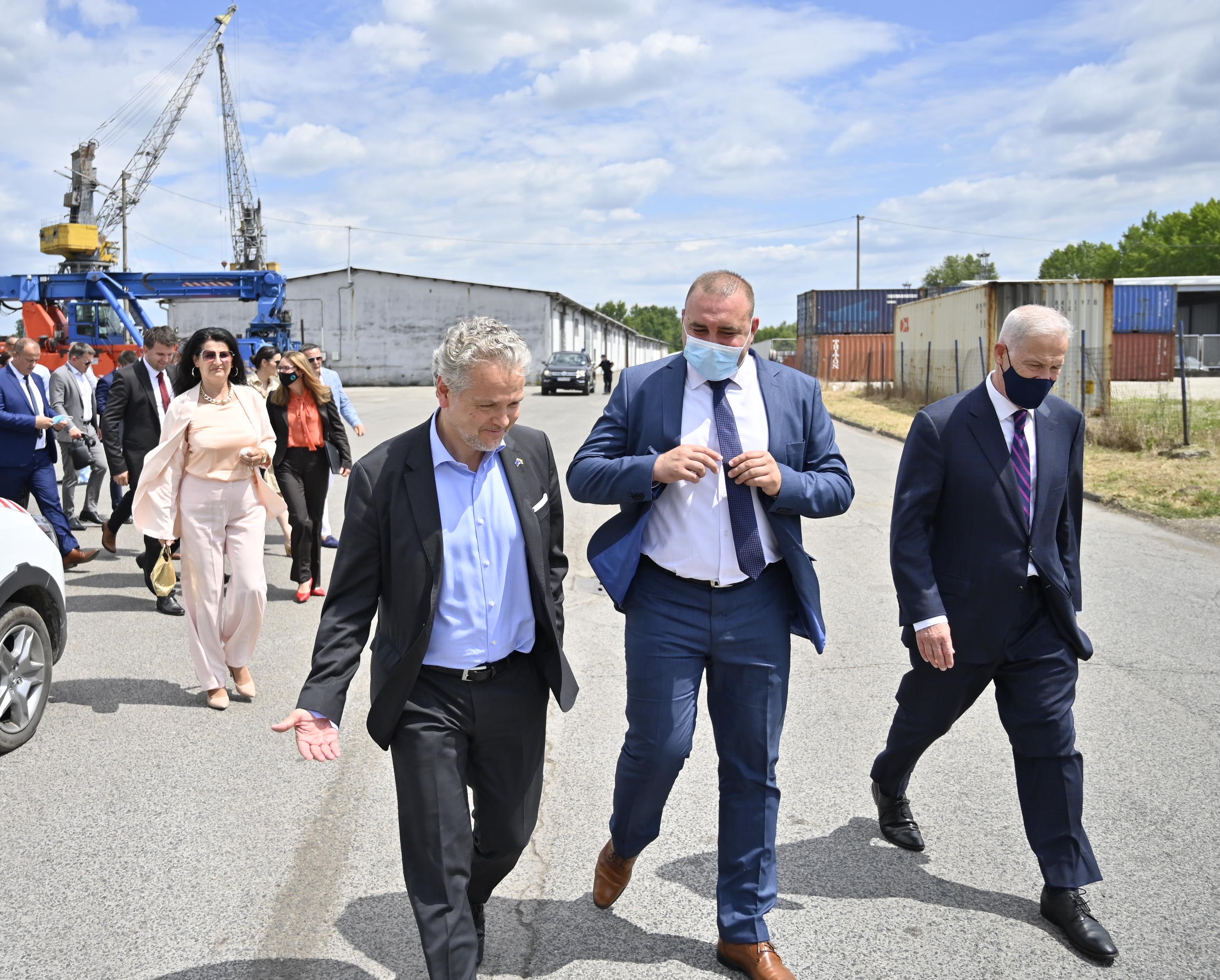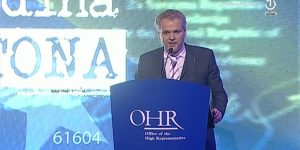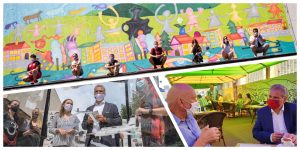Visiting Brčko last week, I was positively surprised by the changes in little over a year. I was in the District to see the start of work on the next phase of the port development, and there were plenty of other signs of progress.
The river is at the heart of everything that happens in Brčko – and this is not just a matter of geography. Describing the Sava river and ways it connects this town to the rest of the country and whole region, the Brčko born writer Bekim Sejranovic wrote “možda zapravo nikada ni ne bi trebali govoriti da se jedna rijeka ulijeva u drugu, već da se one jednostavno spajaju.”
Standing on the banks of the Sava, it’s easy to understand Brčko’s role as a commercial gateway and connector of regions, a role that it is poised to play again. Rivers can be barriers but they don’t have to be: they connect people; they link communities. The Sava is Bosnia and Herzegovina’s natural link to the markets of Central Europe and it stands at the confluence of waterways and land routes that extend all the way from the Mediterranean to the Baltic.
Recognising its significance, the European Union has donated €3 million for the latest port rehabilitation work, complementing a loan from the European Bank for Reconstruction and Development.
Modernising the port and constructing the new Gunja-Brčko bridge, as well as implementing the seven-year Development Strategy adopted recently by the District authorities, is very much in line with the EU’s Agenda for Connectivity, which promotes transport links in the Western Balkans as a key driver of economic development, regional co-operation and European integration.
Speaking with officials from the District last week, together with the transport ministers of Bosnia and Herzegovina and Croatia, the focus was on concrete steps to implement projects that have already been drawn up and agreed. This includes the bridges in Svilaj and Gradiška, which were financed with EU support. Svilaj is part of the Corridor Vc and will be opened in several months. Gradiška, another important bridge connecting Bosnia and Herzegovina with Croatia should be finished next year. It’s important now for the authorities of Bosnia and Herzegovina to finalise all the necessary works so that citizens can use these regularly.
Likewise, when I visited the new EU-funded Brčko District Police Headquarters, which is now operational after a long delay, the focus was on how the police service can move forward. The present Brčko Assembly has repealed amendments to the Law on Police, enacted by its predecessor that contained provisions that were at odds with protecting the rights of citizens. A new law is now being prepared.
After a long delay, the Brčko District Assembly recently appointed the head of the Anti-Corruption Office, which should be fully operational in the next couple of months and increase Brčko District’s capacities to prevent corruption. Already a year ago, Brcko District was the first in the country to improve its legislation on peaceful assembly, paving the way for District’s citizens to exercise their right to peaceful assembly in line with relevant human rights standards and to make their voice heard on matters of importance to them. This is an example that the rest of the country should follow.
I was also briefed during my visit on the progress that is being made on opening Brčko District’s first business zone. I had the pleasure of visiting a firm, and its partners, that benefited from financial and technical support from the EU4 Business programme.
All of the positive initiatives I witnessed last week are rooted in Brčko’s potential – a potential that stems from its geographical position, its commercial and industrial legacy and, especially today, its talented work force. When that potential is fully unleashed, more and more citizens will choose to stay, rather than seeking a better life elsewhere. The EU will continue to invest in and support Brcko alongside other constructive partners on the ground, especially PDHR, so that the region can fully live up to its potential.
I came away from the visit with renewed hope that Brčko is well positioned to follow the development path that its people want to follow, and that it can regain its traditional status as a thriving entrepôt and a positive example to the rest of Bosnia and Herzegovina.




